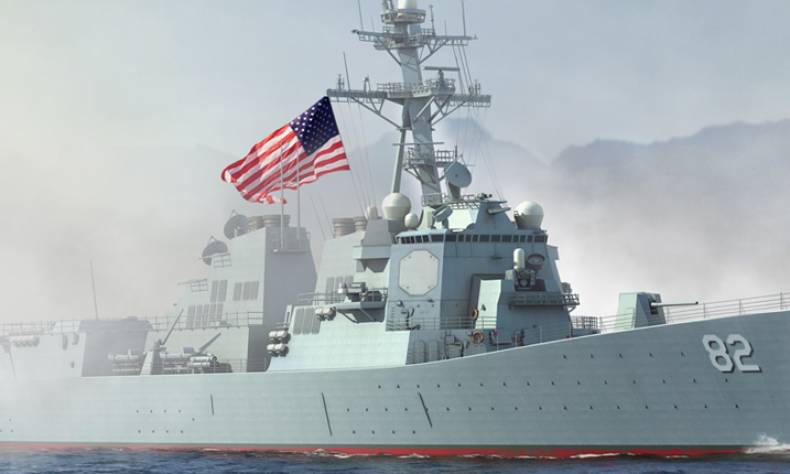
International Law Is Not Always the First Principle for U.S. Military Operations
This week, the international media has been glued on USS Lassen’s entering waters near Zhubi Reef without the permission of the Chinese Government.
According to the U.S. government, the U.S. has two basic reasons for this military operation, the first being the freedom of navigation, and the second being the international law. In the view of the U.S., the international law is the first principle.
However, it is not always the case. The United States does not leave us a credible record of abiding by the international law when it considers its national interest being potentially threatened. For example, the United States has been the largest defaulter of the United Nations. Jesse Helms, a former Republican senator, rebuked the UN and argued that the United States should not pay its dues. In Helms’ view, the international law is nothing like domestic law. It was in this spirit that the United States senate did not ratify the United Nations Convention on the Law of the Sea (UNCLOS).
For many Chinese, the fundamental dispute between China and the United States is the political implication, rather than the international law. The basic fact is that China does not claim 12 nautical miles “territorial sea” right for its reclamation land around the Nansha Islands. The Chinese government understands well UNCLOS, which did not state clearly what kind of island has such right. According to Article 122 of UNCLOS, “an island is a naturally formed area of land”. An Island has its territorial sea, contiguous zone, exclusive economic zone and continental shelf. Unfortunately, an island has many kinds of geographical characteristics. The UNCLOS does not specify a list of islands. As for rocks, the UNCLOS identified them as incapable of “sustaining human habitation or economic life of their own shall”. Also, the problem is that there are disputes on the specific meaning of the definition.
The basic conflict lies in the different interpretation of innocent passage. According to Article 19 of UNCLOS, “passage is innocent so long as it is not prejudicial to the peace, good order or security of the coastal state.” Before this U.S. militaryoperation, has anyone used military force to change the peace, good order and security of the coastal states of the South China Sea? The answer is no one. It is the United States that aims at “collecting information to the prejudice of the defense or security of the coastal states” when its warships passed during the past years. USS Lassen’s passage is reckless and might jeopardize regional peace and stability. The “militarization” of the South China Sea is on the horizon now.
Washington’s real purpose is not safeguarding the international law. Rather, it has been motivated by a variety of strategic purposes. The first purpose is to illustrate its dominance of the sea and its understanding of what the sea is. In the view of the U.S., the governance of the sea should be in accordance with its domestic law. The second purpose is to appease its allies. It seems more and more difficult for allies to believe in U.S. commitments. The United States needs to maintain its prestige and persuade its allies to confront China. The problem is who will follow the U.S.?
In the political arena, a fact is not simply a fact. The meaning of the fact partly depends on the consensus that both sides have reached. Both China and the United States should recognize that it is costly to reshape the international law of the sea without an international consensus. And it is dangerous for the United State to play as a self-appointed “world’s cop”. The sea is now already partly governed. The United States should rethink why it is still not a member of UNCLOS rather than what the freedom of navigation is.
(The author is Associate Professor, National Institute of International Strategy, Chinese Academy of Social Sciences.)
 Facebook
Facebook
 Twitter
Twitter
 Linkedin
Linkedin
 Google +
Google +











图要是采用我海军军舰跟踪监视美舰就好了。